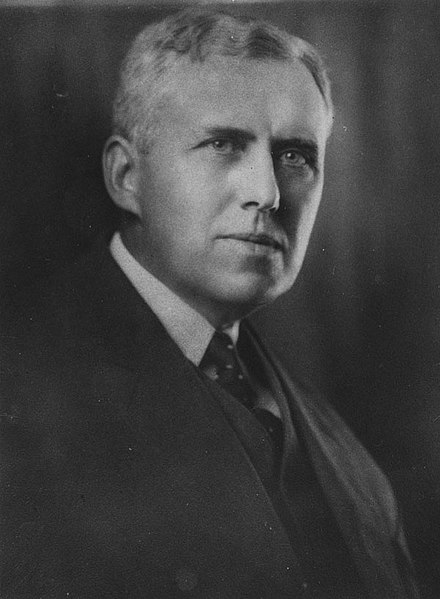
The second general class or type of opinions to which I have referred is distinguished, not by a special emphasis upon some particular view of the nature and purposes of the aggressive activities of states, but by a very definite thesis with respect to the wisdom and the consequences of such activities. If wars are waged for economic advantage, it is held, they defeat their own purposes. So too, in general, with all national policies designed to advance the economic interests of one state at the expense of other states. The truth is, it is alleged, that a nation gains by the prosperity of other nations, not by their poverty.
This general thesis, if stated with some necessary qualifications, would be subscribed to, I think, by most economists. It was brilliantly expounded in Mr. Norman Angell’s book, The Great Illusion. If, in the days of its first vogue, that book seemed to be given little attention by the economists, it was not, I imagine, because they disagreed with it conclusions, but rather because most of those conclusions seemed to them to be fairly commonplace economic doctrines. Doubtless Mr. Angell weakened a good case by pushing it a little too far. He gave too little weight to the special interests (not necessarily or even generally class interests) that may be served by a belligerent or imperialistic policy, even when other interests, larger but more diffused, are injured. He did not adequately distinguish between immediate and ultimate gains and losses. But taking his argument in the large, and leaving details aside, it would command, I believe, the general assent of economists. Some of the policies he finds unwise are, in fact, policies we are accustomed to disparage by lumping them together and calling them neo-mercantilism.
This is from Allyn Young, “Economics and War: A Presidential Address,” American Economic Review, Volume 16, No. 1, March 1926. It’s Harvard professor Allyn Young’s presidential address to the American Economics Association.
Normal Angell’s book, The Great Illusion, which Young refers to, makes the case that trade between countries makes war less likely. I think Young’s critique is apt. The Great Illusion was published in 1909. The war between England and France on the one hand and Germany on the other was a war in which both sides had substantial trade with each other.
But don’t overstate Angell’s naivete. As Wikipedia puts it:
Angell said that arms build-up, for example the naval race between England and Germany that was happening as he wrote the book in the 1900s, was not going to secure peace. Instead, it would lead to increased insecurity and thus ratchet up the likelihood of war. The only viable route to peace would be respect for international law, implemented in a world court, in which issues would be dealt with rationally and peacefully.
Postscript: I don’t think I would have heard of Allyn Young if not for some of the reading I did, very early in my career, of George Stigler‘s work on the the history of economic thought. Incidentally, the great Frank Knight was one of Young’s students.

READER COMMENTS
Mark Brady
May 30 2023 at 4:06pm
Thank you, David for bringing Allyn A. Young’s presidential address to our attention. I recommend that readers of EconLog read the entire article. This article contains many points of departure for a good discussion on EconLog. And if readers want to get a handle on Allyn Abbott Young, including his exchanges with John Maynard Keynes over the Treaty of Versailles (and other issues), I recommend that they read Peter Newman’s entry on Young in The New Palgrave Dictionary of Economics, or Ramesh Chandra’s biography of Young (2020), or Chandra’s Endogenous Growth in Historical Perspective: From Adam Smith
to Paul Romer (2022).
David Henderson
May 30 2023 at 4:23pm
You’re welcome, Mark. And thank you for those references. You clearly know more than I do about this man who’s important in the history of economic thought.
Warren Platts
Jun 1 2023 at 2:24pm
I would go further and argue that free trade between potential rivals increases the risk of war. The whole point of trade is that it produces more economic growth than there otherwise would be. But that economic growth also provides governments the luxury to engage in battleship arms races, as happened with Britain & Germany pre-WWI. A more recent trenchant example is free trade with China. Clearly, when China really was still a developing economy, the risk of war was rather small because China simply didn’t have the economic wherewithal to “fight and win.” But now, thanks the their admittedly amazing economic growth made possible by world trade, China now fields a military that rivals the U.S. military, thus making war at least thinkable.
Pierre Lemieux
Jun 6 2023 at 3:34pm
Warren: China is still a developing country, with a GDP per capita equal to less than one-fourth of what it is in the US (sources [Maddison] and chart in my forthcoming Regulation article on the Great Enrichment). If Trump had not started his economically stupid trade war, the current risk of war would be much reduced. Prosperity can alas increase government revenues, but it also allows more ways, and more incentives, for citizens to resist. If that were not true, the US government would be at war with the EU government and the British government.
Comments are closed.